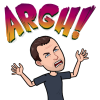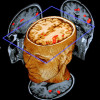Howard Zinn people's history of America, I'm reading it at the moment, is there any alternative?
Hello, I’m Italian and I’m reading what I understood to be a classic in American HIstory. I’m throug 100 pagesi in and I have the feeling that the author is a bit too partisan and unbalanced. Sometimes I feel that he had already decided what happened and then he tries to find facts that confirm his prejudices.
Hence, I’m asking if someone out there knows another book about the same subjecst that is not at all celebratory toward America, actually I’m looking for a book that is very critic and severe toward America, but at the same time that is more balanced. Any advice?
(Sorry if this message could sound confused or badly written, I’m not mother tongue and, also, the feeling toward the book is there but still blurry, but there’s something about this book that doesn’t convince me.)


Add comment